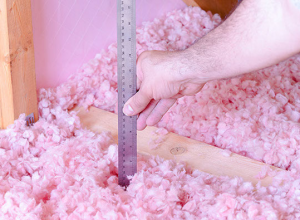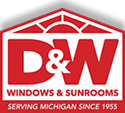
Although there are several choices for attic insulation, we will be discussing the three most common types: batting, blown, and sprayed. Each one having its own characteristics, cost, and benefits, attic insulation is an absolute need for ensuring your home is energy efficient and climate controlled.
Batting
Made of large, long pieces of insulation, batting’s interwoven fibers and adhesive binders come in fiberglass and cotton. In terms of their insulating quality, they are basically equivalent. Cotton batting is made from mostly recycled blue jeans, where as fiberglass is made from molten sand and recycled glass, rendering it naturally noncombustible. The main issue with batting is that they do not work well filling in the spaces properly. Although cost effective, batting just doesn’t make for easy installation. Trying to fill in at junction boxes, wires, and lights becomes tedious and time consuming. An insulation material should be able to fill the whole space with no gaps or voids.
Sprayed
Next on the list is sprayed foam insulation made from polyurethane and isocyanate. When combined, these two materials chemically react, expand and harden. Just like batting there are just two types of this insulation, open cell and closed cell. Open cell is more dense, where as closed cell insulation has a spongier texture. Upon hardening, this type of insulation provides an air tight seal. Providing sound dampening capabilities and the ability to deter mold, spray insulation is unfortunately a costly material as well as installation.
Blown
A better choice in attic insulation is blown insulation. With a machine and hose leading to the space, blown insulation is easily installed. Available in two types, fiberglass and cellulose (recycled newspapers), these materials insulate about the same with R-values in the 3 to 4 per inch range. This insulation is great at filling in the gaps, and providing a complete layer of insulation. At D & W Windows and Sunrooms, we offer the new Owens Corning Propink L77 Pink Fiberglass Insulation. Benefits of this type of insulation are as follows:
- non-combustible and non-corrosive
- formaldehyde free
- resists fungi and mold growth
- will not settle, rot, or decay
- third-party certified to contain 50 percent recycled content (highest percentage in the industry)
For more than 50 years D&W Attic Insulation has been Michigan’s leader in protecting your home from the weather. Please contact us to learn more about installing blown attic insulation in your home today.
